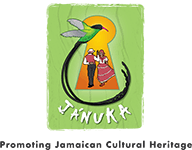 JANUKA have been happily dancing the quadrille – Jamaican style – since 2005.
JANUKA have been happily dancing the quadrille – Jamaican style – since 2005.
We thoroughly enjoy dancing and take great pride in promoting what we strongly believe is our Jamaican cultural heritage.
Why do I continue to dance quadrille?
On a few occasions, I have been asked – Why do I continue to dance quadrille, a European dance, that is so strongly associated with the inhumane treatment, humiliation and pain that our ancestors endured during slavery, under colonial rule?
For someone who proclaim culturally awareness, I should not be surprised by this morally complex and culturally sensitive question, because it is one that I have had to ask myself many times when I started dancing quadrille for entertainment.
Nevertheless on every occasion it is asked, I become consumed with strong negative emotions, because this particular question poses a moral threat to my actions, with the subtle suggestion of cultural betrayal. To be perceived as a “cultural sell out” because I dance Quadrille is a heart-rending fallacy.
Coping strategy
To cope with these negative thoughts and emotions I embarked on a process of deep reflection, during which I extensively examined, questioned, debated, and analysed the impact of the Trans–Atlantic slave trade.
I re-affirmed the truth that my ancestors did endure inhumane treatment, brutality, humiliation and pain during slavery, therefore the validity of the question posed had to be sensitively acknowledged every time it is asked.
I then had to make a conscious decision to refrain from constantly dwelling on the physical and negative aspects of my ancestors’ lives, as continuance had the power to paralyse me into apathy, anger, blame, hatred and an unforgiving attitude, that has the potential to permanently affect my mental health, destroy my soul and prevent me from enjoying my favourite past-time activity – the quadrille dance.
A further decision was to be morally gracious and compassionate. This included learning to forgive all those who were actively involved in my ancestors’ destructive and distressing experiences.
So with an open mind, I now purposefully focus on the positive and spiritual elements of my ancestors’ experiences that are triumphant, uplifting, encouraging, and awe- inspiring, thus worthy of praise.
For example, their dignity; inner strength; wisdom; bravery; tolerance; patience; endurance; community spirit; determination to survive enslavement. Their passionate love of music, singing and dancing are innately powerful and persuasive and their resourceful and creative adaptations to the European quadrille dance are ingenuous.
These positive attributes have instilled in me a strong desire to proudly represent the positive and non-violent legacy of my ancestors’ achievements through the quadrille dance.
My response to why I continue to dance the quadrille
In response to this “culturally sensitive” and “morally charged” question of why I continue to dance the quadrille, I would state in a light-hearted way, that our ancestors’ regularly danced “their quadrille”, during and after the abolition of slavery, and I do believe they enjoyed this activity.
I therefore want to share their passionate love of music and dance with others and celebrate their triumph over oppression.
In relation to JANUKA dancers – I would reiterate that we continue to dance the quadrille for many personal reasons. (see Profiles of JANUKA dancers), but our agreed philosophy is to entertain, educate, inspire and motivate.
- We love and enjoy dancing, as our ancestors did, feeling empowered by the freedom of mind, body and spirit that dancing inspire.
- Through quadrille dancing we have gained in-depth knowledge and critical understanding of our cultural history, and our ancestors’ struggle for freedom, justice and equality.
- Dance has brought to the fore strongly held values and beliefs of who we are as Jamaicans of African ancestry, who we are as a group of dancers with a rich and diverse cultural heritage. We are humane, purposeful, visionary, talented, and gracious and possess great strength of character.
- We bring together people from different communities, race, cultures and generations to learn about our cultural values, beliefs and strengths. We graciously ensure that we pass on the legacy of our African – Jamaican ancestors’ cultural richness, such as their value of human life, free spiritedness, wisdom, intellect, creativity, inner strength, defiance, resilience, tenacity and determination to survive enslavement.
- We encourage positive interactions and the development of friendships by providing a relaxed non- threatening environment for individuals to socialize, grow and learn the dance together.
- We believe in the therapeutic value of music and dance. Exercise, laughter and relaxation are important in promoting health and well- being, especially when experiencing physical and emotional pain.
- We are able to encourage the acquisition of some basic skills for living, inherent in working together and dancing in a group. These include tolerance, patience, self- awareness, self-control, graciousness, compassion, forgiveness and mutual respect. Other skills include commitment, concentration, effective communication, determination and discipline.
Therefore, despite this relevant culturally sensitive and morally charged question about quadrille dancing, there has been overwhelming acceptance of our rationale for dancing it in the written and verbal feedback received about our performances.
The general perception is that we have successfully demonstrated how to turn a negative experience into a positive and powerful learning opportunity, presented in a light hearted and enjoyable way.
We are empowered and encouraged to continue dancing the quadrille, because it helps to illuminate our rich and diverse cultural heritage as well as provide suitable entertainment for adults and children.
In the next Blog I will present a creative account of the significant meaning of Quadrille dancing by our ancestors in an effort to further justify why JANUKA continue to dance it.




